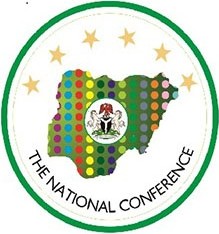 ABUJA (National Conference Report) – The National Conference Committee on Politics and Governance on Monday May 12, 2013 expressed shock over the death of Chukwudifu Oputa (Eminent Jurist), describing it as a great loss to the legal profession.
ABUJA (National Conference Report) – The National Conference Committee on Politics and Governance on Monday May 12, 2013 expressed shock over the death of Chukwudifu Oputa (Eminent Jurist), describing it as a great loss to the legal profession.
In a motion tabled before the business of the day, the Co-Chairman of the Committee, Jerry Gana (Professor) called on Mike Ahamba, who is a Senior Advocate of Nigeria to officially brief the members of the Committee about Chukwudifu Oputa’s death. Mike Ahamba said that Chukwudife Oputa was an eminent jurist who dispensed justice without fear or favour. Adding, he was a teacher of great repute.
On the issue of the country’s rising debt profile, the Committee on Public Finance sought to know the level of control which the Debt Management Office (DMO) has on State Governments in terms of borrowing.
The Director General of the Debt Management Office, Abraham Nwankwo in his presentation emphasized on borrowing and debt management as part of the modern economy, citing Germany and UK as having strong and frugal economies but susceptible to borrowing. He identified the nation’s external debt to be at 9.16 billion dollars with the State Governments having approximately 2.8 billion dollars. According to him, the State Governments account for 18 percent of domestic debts, while the Federal Government accounts for 82 percent.
‘The laws guiding borrowing, he said stipulates that no state can borrow except with the expressed permission of the National Assembly.’ Adding, any state that does not conform to the stipulation would be seen as committing illegality. “States also require the approval of the Finance Minister to borrow from the capital market. For States to borrow in whatever form, they must obtain the approval of their respective Houses of Assembly,” he noted.
Abraham Nwankwo explained that it is the responsibility of the Security Exchange Commission to ensure that the money borrowed from the capital market by the States is judiciously utilised. He maintained that in 2007, the DMO decided to help the States to establish debt management departments to reconstruct their debt profile, particularly domestic debt which he put at N8.7 trillion, excluding debts owed local contractors. “Contractor’s debt is not included because it is a structured debt and usually provided for in the budget,” he revealed.
The Committee Chairman, Adamu Aliero (Senator) expressed concern over the action of State Governments who borrow money indiscriminately from foreign sources without due process. He sought explanation from the DMO as to this action.
In his response, the Director General of DMO stated that the relevant agencies of government which are saddled with the responsibility of tackling states that violate the laws regarding debt management and borrowing are to take appropriate action. He intensified that while Nigeria’s cumulative debt at N10.1 trillion accounts for about 10 percent of the nation’s GDP, Nigeria has been consistent with the servicing of all its loans.
A member of the Committee, Bala Mande expressed worries over the tripling of the nation’s debt and questioned the relationship between the DMO and other relevant agencies like EFCC and ICPC. Another member of the Committee, Dipreye Alamieyeseigha requested to know the effectiveness of the control mechanisms in borrowing given that most States do not conform with laid down procedures.
While explaining reasons for the questions raised, Abraham Nwankwo noted that the DMO works with State governments, but has no relationship with either the EFCC or ICPC, since the DMO is not a law enforcement agency. On the effectiveness of the mechanism to control State governments, he said the DMO would be unable to act, once the State Assemblies agree to such loans as stipulated by the law. He added that citizens have the responsibility of ensuring that state government use borrowed money judiciously.
In a meeting with the delegation from the National Planning Commission led by the Director of Micro Economic Analysis, Tunde Lawal, who represented the Minister of National Planning briefed the Committee on the state of the nation’s public finance and the role of national budget in public finance management.
He said that deficit financing is inevitable for a developing nation like Nigeria and listed the major sources of Public Finance to include: Federation Account, Value – Added Tax and Oil Revenue. He indicated that the net federally collected revenue in 2013 was N6 trillion, while oil revenue accounted for 76 per cent of all net revenue accruing to the federal government. The GDP in 2013, he disclosed was 9.8 per cent, while the value – added tax was 16 percent, customs being 9 percent and non-oil tax increased from N1.5 trillion in 2010 to 2.1 trillion in 2013 .
He further stressed the need to tackle issues of waivers and exemptions, saying government is working towards reducing recurrent expenditure.
Support InfoStride News' Credible Journalism: Only credible journalism can guarantee a fair, accountable and transparent society, including democracy and government. It involves a lot of efforts and money. We need your support. Click here to Donate
